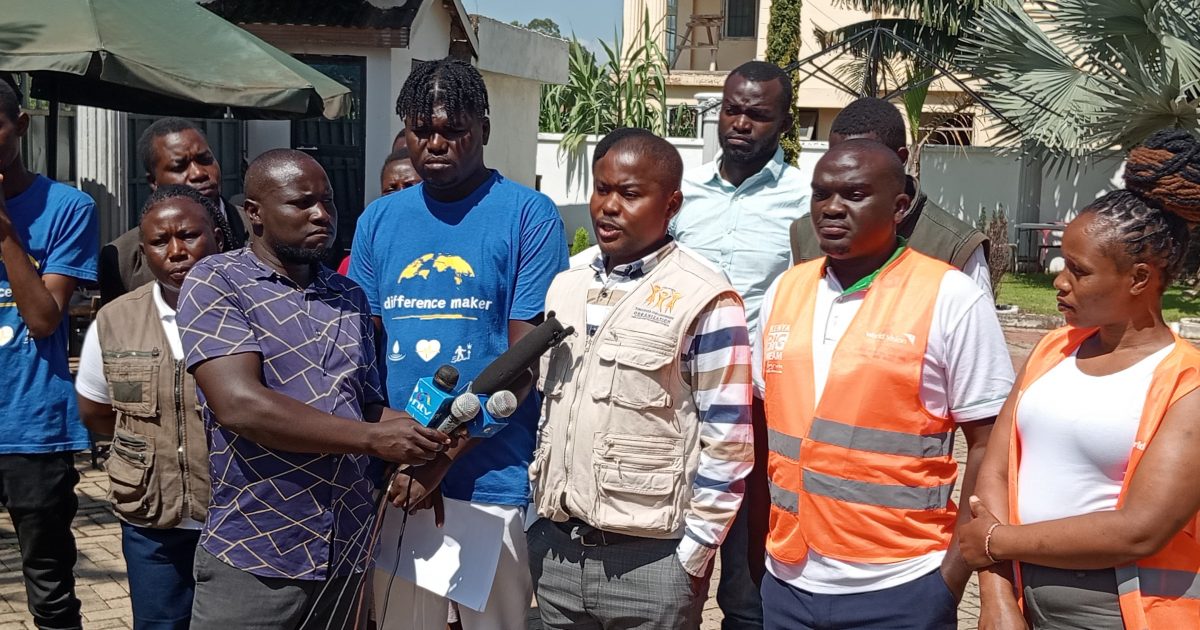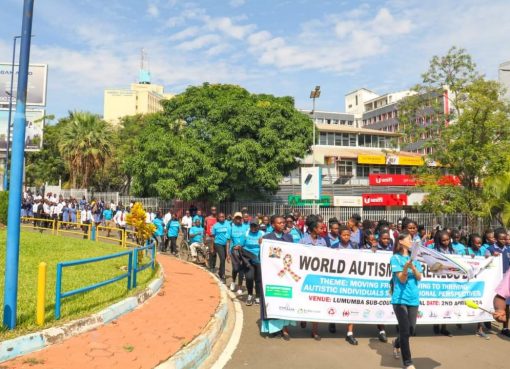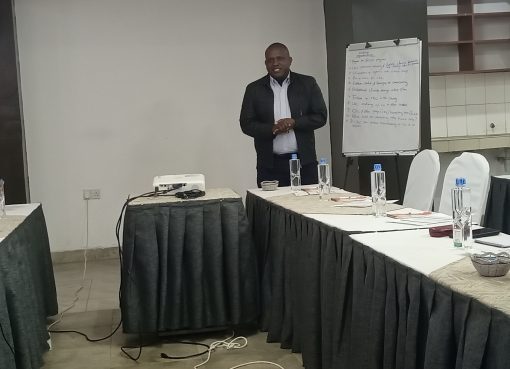Civil Society Organisations (CSOs) in Migori have condemned the ongoing Female Genital Mutilation (FGM) in the Kuria region.
Speaking during a media briefing at one of the local hotels in Migori town, the CSOs’ representatives said that the practice has become a daily occurrence, a worrying statistic that the majority of girls may be subjected to the inhumane acts before the end of the December holidays.
WHO Lives NGO Official, Jimmy Mukundi noted that one of the contributing factors to the rise of the FGM cases in November and December, has been the reckless glorifying sentiments by some politicians calling for the preservation of cultures and traditions among the communities.
Mukundi said that FGM is a retrogressive culture that should be shunned and any glorification of the same goes against the 2010 Constitution that provides for the right of protection of children.
He disclosed that so far, two individuals believed to be circumcisers have been arrested urging the security agencies to intensify the arrest to curb the vice.
Mukundi noted that challenges that have resulted in the rise of the FGM in Kuria include the importation of FGM traditional circumcisers from neighbouring Tanzania which makes it difficult to arrest them as well as the cross-border FGM.
He called upon all local politicians, local administration, CSO and the Anti-FGM champions in Migori to speak in one voice to help curb the retrogressive vice.
Tunaweza Empowerment Organisation CEO Vicinet Mwita said that CSOs will continue speaking in one voice and call for more action among the Anti-FGM actors to help address the rising cases of FGM in the Kuria region.
Mwita lauded the efforts of the local law enforcers for their courage in tackling the vice.
He, however pointed out that the arrest of the two individuals is not enough to curb the rampant vice that has been on the rise since schools closed for the December holidays.
“Girls are being paraded in daylight after the cut and dancing along the Kehancha-Migori roads and yet nothing is done to arrest or deter the vice”, lamented Mwita.
The official also explained that the circumcisers have improvised tactics of cutting in the night to avoid arrest while others are importing circumcisers from across the border making it difficult to arrest them.
Mwita called for immediate action among the Anti FGM stakeholders especially the local enforcement agents to save the situation and save the Kuria girls.
“For the last four years, Migori had made tremendous steps in curbing the vice but the recent activities have come as a surprise that may jeopardize the long-term efforts brought about by the CSOs”, noted Mwita.
The FGM events come at a time when Migori has joined the rest of the country in marking 16 days of activism against Gender-Based Violence (GBV).
In a similar event at Kehancha town, Safe Engage Foundation officials echoed the CSOs sentiments by calling upon the local administration to put more effort into arresting the perpetrators.
Speaking during the Arts and Culture workshop for the youths and adolescents at Safe Engage Grounds, Regina Ghati, a Programme Officer for the NGO said that it was unfortunate that a section of the Kuria community continues to subject their girls to the cut in broad day without fear of being arrested.
According to the Safe Engage Foundation, at least 40 girls have been rescued from the harmful and retrogressive vice this December.
Ghati however noted that the majority of girls continue to be subjected to the FGM making their effort a lost cause. She was, however, optimistic that the concerned Anti FGM stakeholders would come to the rescue before it’s too late.
She pointed out that the cross-border FGM has become a major problem that impacts CSO’s efforts in the fight against the vice.
The official also called upon the East Africa Community (EAC) integration to focus on addressing the vice to make the region a better place to live in by promoting positive and developmental traditional virtues.
Meanwhile, Jacinta Nyambura from an International NGO-Mental Real of State said that the organisation has been focusing on girls from remote places and educating them on retrogressive vices like FGM and GBV.
Nyambura, who also represents Amani Goal NGO, said that currently they are supporting more than 1,500 girls from slum areas in Nairobi.
She acknowledged that by creating more awareness and education among the youth, retrogressive vices like FGM will be eradicated with time.
Nyambura said the lack of political goodwill among the elected leaders is a major challenge that needs to be addressed in solving some of the retrogressive issues in the Kuria community.
By Geoffrey Makokha





